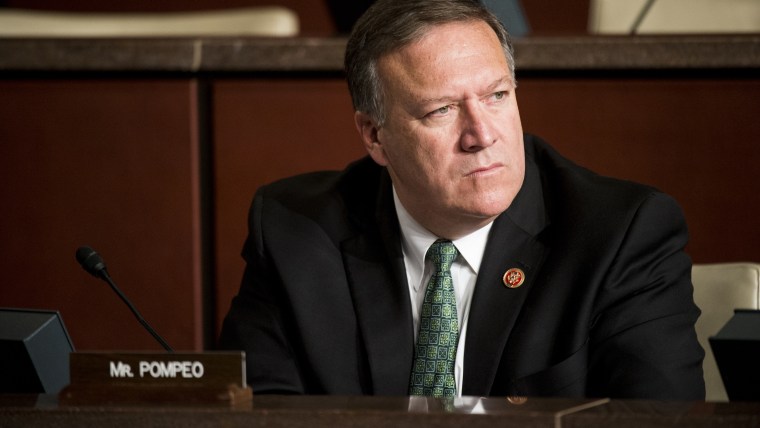Even before he became president, Donald Trump went out of his way to dismiss U.S. intelligence assessments he found politically inconvenient. That's continued throughout 2017: the more intelligence professionals tell him Russia attacked the American election to help put him in office, the more Trump tells the public he's more inclined to believe Vladimir Putin.
All of which led to a good question for the president yesterday: if Trump has so many doubts about the findings of the U.S. intelligence agencies, how reliable is the intelligence now as it relates to North Korea? The president responded:
"Well, you know, it's different intelligence. I have Mike Pompeo. I have great confidence in him. That doesn't mean I had confidence in his predecessor. OK? Which I didn't, actually, although -- although he did say good things about me. He did say he had no information or know anything on collusion. So I shouldn't maybe say that, but I will say it."But I have tremendous confidence in Mike Pompeo, Dan Coats -- fantastic. I mean, we have -- we have people."
If we cut through the strange nonsense, what Trump was apparently trying to say was that things are different now. He didn't believe intelligence assessments before, but now that Mike Pompeo is the director of the CIA, Trump can finally have confidence in the information presented to him.
In other words, if Mike Pompeo gives the president information about the North Korean threat, Trump is going to believe it.
And that's fine, although it raises a related question: if Pompeo gives the president information about Russia, Trump is going to believe that, too?
Because Pompeo has already said publicly that he believes Russia was responsible for the attack on the American election last year. "It's pretty clear about what took place here, about Russian involvement in efforts to hack information, and to have an impact on American democracy," Pompeo told a Senate committee earlier this year. "I'm very clear-eyed about what that intelligence report says."
Asked about the intelligence agencies' findings about Russia's role in the attack, Pompeo added, "I've seen nothing to cast any doubt on the findings in the [intelligence community's] report."
So, here's the question for the White House: if Trump believes Pompeo, and Pompeo believes the intelligence on Russia's attack, why exactly does the president continue to deny what his administration's own intelligence professionals tell him?
